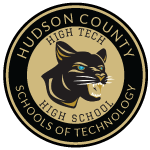The Academy for Design and Fabrication (D|Fab) prepares students for college-level study and/or careers in architecture, fine art, interior design, urban planning, industrial design, industrial engineering, mechanical engineering, mechatronics, automotive technology, digital fabrication, wood technology, and computer programming. Freshmen rotate through Career and Technical Education (CTE) courses throughout the year. They are also exposed to the multitude of career possibilities in these fields through field trips and guest speakers. Cycling the students through the pathways in this manner exposes them to the variety of careers related to these areas, provides basic skills (such as such as sketching, Adobe InDesign, Photoshop, AutoCad, and 3DMax, etc), and shows students how these fields are interconnected beyond the classroom.
Courses
Architecture is the art and science of designing our built environment. The Architecture Studio is, first, a place for work; second, a place to make discoveries; and third, a place for discussion and critique. Students develop the ability to communicate their ideas by way of 2D representation and compositing, physical and digital model making. This eventually leads to direct-to-manufacture techniques for the production of models, components and assemblies via 3D printers, laser-cutters and CNC machines. There are opportunities for students to participate in structured learning experiences such as museum visits, building tours, visits to architecture firms and, potentially, internships. At the end of this four-year course sequence, students are prepared for postsecondary studies in a wide variety of design-related fields.
This interdisciplinary major involves the design and development of computing systems applications. This major has roots in mathematics, engineering and applications. Students will learn a variety of programming languages such as Java, C, and C++, that will enable them to create independent projects in programming developing, code writing, and even web design. Through this course and these programs, students will learn the fundamentals of computer science concepts that can be applied across the programming languages, preparing students for high level computer science courses. Exposure to these technologies will put any young creative programmer on a path to bankable skills, and open their minds up to endless possibilities. Upon completion of this course, students will have received a thorough introduction to the skills and tools needed in order to remain competitive and succeed in an emerging market.
Metal Fabrication is a course where students learn about workshop safety, different types and shapes of metallic materials, how we leverage technology to safely manipulate these materials and their applications in manufacturing engineering. Students will use all types of industry-standard equipment and processes including pressure to form, hot arcs and sparks to cut, melt, weld and grind. They will utilize manual and CNC technology for precision and mass production. Students will learn how things work, how they are made, and how they break in order to properly fix them. Students will learn proper workplace safety and procedures which will benefit them in future endeavors in engineering and manufacturing fields. We work hard to develop creativity and skills through the many free-form projects in this course. This course is for students interested in working with their hands and making their ideas come to life.
Engineering Tech students focus their education and training on the necessary technical skills and the correlated mathematics, science, and technology needed to enter the changing field of engineering technology & automation. This program utilizes state-of-the-art equipment to diagnose, test, repair, fabricate, and replace parts and components. Course topics may include fundamental concepts of robotics, automated manufacturing, engineering design, and design analysis. Advanced topics include electrical/mechanical components, electrical drives, pneumatic/hydraulic control circuits and programmable logic controllers (PLCs). This program leads to the opportunity for students to acquire an industry-recognized Level 1 Siemens Mechatronic Systems Certification (SMSCP).
In this course, students will be exposed to the systematic approach to visual problem solving starting with simple basic concepts and elements, and progressing to a complex understanding of visual language. Aesthetics and art appreciation will be discussed in order to develop the student’s judgment and artistic taste.
Industrial designers design products conceiving, making, and producing the things we use in our everyday lives. This course is designed to integrate thinking and making, cultivating students prepared to meet the challenges of our time. Students will utilize industry-standard software including Autodesk Inventor, 3Ds Max Design, Solidworks and others to develop innovative products while considering their effect on our environment. Elements of animation and virtual reality are utilized to bring their creations to life. In addition, students acquire skills enabling them to fabricate their working prototypes utilizing direct-to-manufacture techniques such as a 3D printing, laser cutting and CNC machining.
Wood Technology courses include both design and fabrication; students in wood technology will work hand-in-hand with other CTE students to design and build projects. Coursework includes not only design and fabrication but also computer-aided design and manufacturing (CAD-CAM). Students will first be introduced to the technology of woodworking: jointer, planer, table saw, band saw, drill press, shaper, router, CNC machining, sharpening, joinery, assembly and finishing. Courses are project-based, class sizes are small, safety is at the core, and technique and procedure drive the projects. There is open laboratory time for working on independent projects. This provides the opportunity for advanced practice with emphasis on complex planning and structures.

